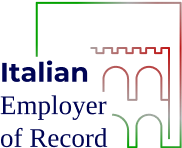23 April 2025
Hiring employees in Italy without a local entity: how to do it?
Hiring employees in Italy presents a unique set of challenges for international companies. Italy’s complex labour laws, robust employee protections, and intricate payroll system require a deep understanding of local regulations. Traditionally, establishing a local entity—such as a subsidiary or branch office—was the only path forward for companies seeking to hire locally. However, setting up a legal presence can be time-consuming, expensive, and difficult for businesses testing the Italian market or only looking to hire a few employees.
Fortunately, alternative hiring solutions now allow international businesses to build a workforce in Italy without needing a local legal entity. These solutions allow companies to tap into Italy’s talent pool, remain compliant with local labour laws, and maintain operational flexibility. Whether you’re a startup looking to expand your global footprint, a scale-up exploring a new market, or a large enterprise hiring remote workers in Italy, it’s crucial to understand your options.
This guide will walk you through the legal, tax, and operational considerations of hiring in Italy without a local entity and introduce Italian Employer of Record (EOR) services as a practical, compliant solution.
Can you legally hire in Italy without a local entity?
Before diving into potential solutions, it’s essential to understand the core challenge: Italian employment law requires employers to have a legal presence in the country to directly employ workers. This usually means registering a local legal entity, complying with national labour regulations, and handling local taxes and social security contributions.
International companies risk misclassifying employees as independent contractors without a legal entity or failing to meet Italy’s strict compliance requirements. Such missteps can lead to tax penalties, legal disputes, and reputational damage.
Challenges of hiring employees in Italy as a foreign company
When hiring without a local entity, foreign companies must address several key issues:
1. Italian employment law and mandatory protections: Italy has comprehensive labour laws designed to protect workers. Employers must provide written contracts, adhere to collective bargaining agreements (Contratti Collettivi Nazionali di Lavoro – CCNL), and follow strict termination and severance rules. Failing to meet these standards can result in costly penalties and disputes.
2. Income tax and social security obligations: All employers in Italy are responsible for withholding and remitting employee income taxes (IRPEF) and making contributions to the National Social Security Institute (INPS). Calculating these amounts correctly requires local payroll expertise and a thorough understanding of Italy’s tax system.
3. Payroll processing and local compliance standards: Italian payroll involves more than just paying salaries. Employers must account for various deductions, benefits, and bonuses – often tied to CBAs. Additionally, they must meet reporting deadlines, provide payslips in the correct format, and ensure that employees receive statutory leave, sick pay, and other entitlements.
4. Managing employment contracts, severance, and benefits remotely: Employment contracts in Italy must be written under local laws and often need to include specific provisions from CBAs. Termination procedures, notice periods, and severance payments are also strictly regulated, making it challenging for foreign employers to navigate these requirements without local legal support.
3 options for hiring without establishing a subsidiary
Given these challenges, companies may consider several approaches to hiring in Italy without a local entity. However, not all options are equally compliant or practical:
- Contractor vs employee models: Some businesses classify workers as independent contractors. While this may seem more straightforward at first, it carries significant risks. Misclassification can lead to fines, back taxes, and lawsuits, especially if the contractor’s working conditions resemble an employee’s.
- Self-employment route: In certain cases, workers may register as self-employed professionals. This option can work for freelancers or project-based roles, but it’s not ideal for full-time employees. Self-employed individuals must handle their own taxes and social security contributions, and the arrangement often lacks stability and benefits.
- Employer of Record: Partnering with an EOR is a more reliable alternative. By using an EOR, businesses can hire workers in Italy without setting up a local entity, ensuring full compliance with Italian labour laws and maintaining operational efficiency.
How an Italian Employer of Record enables compliant hiring
An Employer of Record (EOR) is a third-party service provider that acts as the legal employer on behalf of a company. When you partner with an EOR in Italy, the EOR takes on all the responsibilities and obligations of a local employer while allowing you to retain control over your employees’ day-to-day tasks. Here’s how it works.
An EOR is not a recruitment agency. Rather, it’s a service provider that legally employs workers in a specific country on behalf of a foreign company. The EOR handles all local compliance requirements, including payroll, taxes, and benefits, while the company manages the workers’ roles and responsibilities.
Key responsibilities of the EOR:
- Drafting compliant employment contracts: The EOR ensures that all contracts meet Italian labour law standards and include any necessary provisions from CBAs.
- Processing payroll and tax filings: The EOR calculates and withholds the correct amounts for IRPEF, INPS, and other statutory deductions, ensuring timely and accurate submissions.
- Managing benefits, leave, and local labour obligations: The EOR ensures that employees receive all legally required benefits from holiday entitlements to maternity leave.
Benefits of using an EOR:
- Fast market entry: With an EOR, you can hire employees in Italy within weeks, rather than waiting months to set up a subsidiary.
- No need for local incorporation: An EOR eliminates the need to establish a legal entity, saving time and resources.
- Full compliance with Italian employment law: By partnering with an EOR, you reduce the risk of fines, audits, and legal disputes.
- Reduced administrative burden: The EOR handles all payroll, tax, and compliance tasks, freeing your team to focus on core business operations.
When should you consider using an EOR in Italy?
An EOR is not the only solution, but it’s particularly beneficial in certain scenarios:
- Hiring a single employee or small team: Setting up a subsidiary can be too costly and time-consuming if you only need to hire a few workers in Italy. An EOR provides a cost-effective solution.
- Testing the Italian market before full expansion: Using an EOR allows you to establish a local presence and evaluate market opportunities without committing to a full legal entity.
- Supporting remote workers who wish to relocate to Italy: If you have existing employees or contractors who want to work from Italy, an EOR can ensure that their employment remains compliant with local laws.
- Avoiding long-term investment in company formation: For businesses unsure about their long-term plans in Italy, partnering with an EOR offers the flexibility to hire now and decide later whether to set up a subsidiary.
A German software company wanted to expand its operations by hiring developers in Italy. However, they lacked a local entity, so managing complex Italian labour laws and tax requirements seemed overwhelming.
Partnering with an Employer of Record allowed the German company to quickly onboard the Italian employees without needing a branch or subsidiary. The EOR handled employment contracts, payroll, tax compliance, and social security contributions. As a result, the German company could focus on growing its team and delivering projects, while the EOR ensured everything was done legally and efficiently.
Hire employees with ease
Hiring employees in Italy without a local entity may seem daunting, but it’s entirely feasible with the right approach. By understanding the challenges of Italian labour laws, payroll requirements, and compliance risks, international businesses can make informed decisions about their workforce strategy.
For many companies, partnering with a reputable Employer of Record (EOR) provides a simplified, compliant solution – ensuring that employees receive proper benefits, taxes are correctly withheld, and all local regulations are met. Contact us to explore how an EOR can help your company hire in Italy quickly, compliantly, and without needing a local legal entity.



